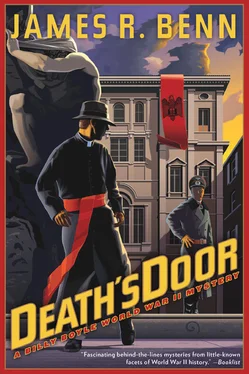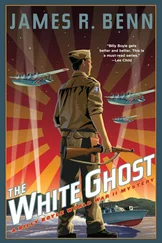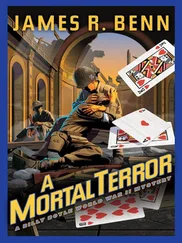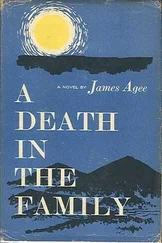James Benn - Death
Здесь есть возможность читать онлайн «James Benn - Death» весь текст электронной книги совершенно бесплатно (целиком полную версию без сокращений). В некоторых случаях можно слушать аудио, скачать через торрент в формате fb2 и присутствует краткое содержание. Жанр: Шпионский детектив, на английском языке. Описание произведения, (предисловие) а так же отзывы посетителей доступны на портале библиотеки ЛибКат.
- Название:Death
- Автор:
- Жанр:
- Год:неизвестен
- ISBN:нет данных
- Рейтинг книги:4 / 5. Голосов: 1
-
Избранное:Добавить в избранное
- Отзывы:
-
Ваша оценка:
- 80
- 1
- 2
- 3
- 4
- 5
Death: краткое содержание, описание и аннотация
Предлагаем к чтению аннотацию, описание, краткое содержание или предисловие (зависит от того, что написал сам автор книги «Death»). Если вы не нашли необходимую информацию о книге — напишите в комментариях, мы постараемся отыскать её.
Death — читать онлайн бесплатно полную книгу (весь текст) целиком
Ниже представлен текст книги, разбитый по страницам. Система сохранения места последней прочитанной страницы, позволяет с удобством читать онлайн бесплатно книгу «Death», без необходимости каждый раз заново искать на чём Вы остановились. Поставьте закладку, и сможете в любой момент перейти на страницу, на которой закончили чтение.
Интервал:
Закладка:
“What exactly is it that you do for the British ambassador?” Kaz asked, clearly impressed.
“I am Sir D’Arcy’s butler,” May said, as if it should be obvious.
“Of course,” Kaz said, his continental background kicking in. He was a baron, after all. “That explains everything except why it was you who met the train.”
“All things in good time, gentlemen,” May said, opening the door to a wide passageway. “No English for a while, if you please.”
We stepped into the corridor, the vaulted ceilings glittering with gold leaf and brightly painted decorations. Closer to the ground, the colors were more gray-green, as German soldiers strolled past us, studying the frescoes that lined the walls. Maps. They were all maps of the Mediterranean. Italy, Sicily, North Africa. Medieval maps, but they showed the same lands and seaways we were fighting over. Not for the first time, I saw.
I brushed past two Germans pointing at a map of Sicily, surrounded by cobalt-blue waters and ships of the line in full sail. Their fingers traced lines in the air, and I understood they were talking about their days in Sicily, charting their withdrawal across the Strait of Messina. Had we shot at each other? Had I killed some of their pals, or they mine? For the moment they were tourists, unarmed, off duty. I had a strange desire to join them, to move my finger along the coast, into the interior, and see if our lines intersected.
“Padre, bitte?” One of them said, holding up a camera in that universal request to have a photograph taken. I nodded, trying for serene. The two of them posed in front of the Sicily fresco, arms around each other’s shoulders. I took the picture, hoping one of them might show his grandchildren this snapshot one day.
May shot me a look and I caught up with him. I didn’t see any reason to worry within these walls, especially not from a couple of privates gawking at the artwork. We left the museum building and walked along a roadway, passing a round tower that looked like it belonged on a castle. May took us under an arch in a narrow wall, and then we were there.
Saint Peter’s Square. Magnificent colonnades circled the piazza, with a view of the Tiber River one way and the facade of Saint Peter’s Basilica the other. Between them, a white line was painted on the stones, marking the border between the neutral Vatican and occupied Rome. German paratroopers guarded the line, their eyes searching those who approached. These guys were not off duty. Helmeted and heavily armed, they stopped and questioned several people approaching the square, eventually letting them all through. I noticed that people strolled out easily; it was those who wanted to enter who came under scrutiny.
“I thought you might want to see the scene of the crime,” May said. “As well as be cautioned not to get too close to the line. I wouldn’t put it past the Jerries to snatch a fellow if he came within arm’s reach.”
“All right, take us to Death’s Door,” I said, feeling a bit melodramatic as I said it.
The portico was gleaming white marble, the floor inlaid with the crests of Popes who had the clout to get the top billing. The central three doors were bronze, flanked by two plain oak doors, the Door of Death on the far left side.
“He was found here,” May said. “On the top step at the base of the door. The Swiss Guard who came across him at first thought he was an escaped POW or refugee sleeping under the cover of the portico. When he got close enough, he saw the cassock. And the blood.”
“Was the weapon found?”
“No. Soletto had the trash cans searched, but nothing was discovered. He was certain he had his man, so the search was halfhearted.”
“We were told that Corrigan had been stabbed between the ribs,” Kaz said. “It that the case?”
“Well, yes, in a manner of speaking,” May said. “He was stabbed a number of times. The killer finally thrust one into the heart.”
“How do you know all this?” I asked.
“I have friends among the Swiss Guard. I do them favors from time to time, and they repay the kindness. Sir D’Arcy likes to be well informed.”
“The duty of any good butler,” Kaz said.
“One aims to please,” May said, his mischievousness showing for a brief second.
“We need to come back tonight, to get a sense of the scene when he was stabbed,” I said.
“Pitch black,” May said. “The Vatican is blacked out at night, like the rest of Rome.”
“If Corrigan willingly came here,” Kaz said, standing on the marble steps leading up to the door, “it was to meet someone in secret, in the farthest, darkest corner of the square.”
“I’ll bring you here after dark, but let’s move on now. There’s nothing to see and it will only attract attention.” He took us through the colonnade to the left of the portico and held up his hand. “We are going to that building, through the Piazza del Sant’Uffizio. We have to cross a bit of open ground.”
He pointed to the white line, which went from along the base of the colonnade and crossed a road leading into the piazza. A group of monks crossed toward us, and two nuns in the other direction. Two German paratroopers watched them with bored expressions.
“It looks safe,” I said, working at convincing myself.
“It is,” May said. “We took the long way around so I could show you the door, and avoid Soletto as well. It would have been a short walk from the Governatorato. But as you can see, people cross here as a matter of routine. They are not stopped if they are clearly crossing from the square. Look as if you belong.”
I held my hands together in contemplative prayer and followed. The paratroopers lit cigarettes and ignored us.
“Here’s where you’ll be staying,” May said a minute later. “The German College, but don’t be worried by the name. The nuns who run the place are German but quite loyal to the Pope. It was used to house German priests and seminarians who traveled to the Holy See, but that traffic has dropped off a bit, as you can imagine. One moment, please.” With that, he approached the Vatican gendarme who stood at the main door. They shook hands, chatted for a moment, and then the door was opened for us, the gendarme bowing like the doorman at the Copley Plaza.
“Why a guard at the door?” I asked as we stepped inside.
“This area is actually in Italian territory. The college was built up against the old wall marking the boundary of the Holy See. This is a public street, but the college has extraterritorial status and inside is considered sovereign Vatican territory. The guard is there to keep the public out, not to spy on you.”
“Tricky jurisdiction,” I said. “Let’s hope no bodies are found here.”
“Indeed,” May said with a lift of his bushy eyebrows, as if it were a real concern. He showed us to a small room, clean but Spartan. A bed against each side wall, a table and chairs in between. A washstand with a pitcher of water completed the scene.
“Your bags, gentlemen,” May said, indicating the suitcase on each bed. Next to them was a clean set of clothes, cassocks, the whole nine yards. “The clothing is complete with tailor’s labels from Rome, to be on the safe side.”
“You’re amazing, May,” I said. “Thank you.”
“It is nothing. I am sorry that hot water and heat are in short supply. There is a bathroom down the hall, with a good supply of warm water at best. His Holiness has decreed that all Vatican buildings are to go without heat this winter, since fuel is so scarce in Rome. He doesn’t wish the people to think we live a life of luxury in here.”
“It’s February, for crying out loud. Do you mean that the Vatican has no fuel at all?”
“No, there is a large supply of coal in bunkers hidden within the gardens. But it is not to be touched until the people of Rome have fuel restored. Now rest, and someone will bring you to Sir D’Arcy’s residence at eight o’clock.”
Читать дальшеИнтервал:
Закладка:
Похожие книги на «Death»
Представляем Вашему вниманию похожие книги на «Death» списком для выбора. Мы отобрали схожую по названию и смыслу литературу в надежде предоставить читателям больше вариантов отыскать новые, интересные, ещё непрочитанные произведения.
Обсуждение, отзывы о книге «Death» и просто собственные мнения читателей. Оставьте ваши комментарии, напишите, что Вы думаете о произведении, его смысле или главных героях. Укажите что конкретно понравилось, а что нет, и почему Вы так считаете.












